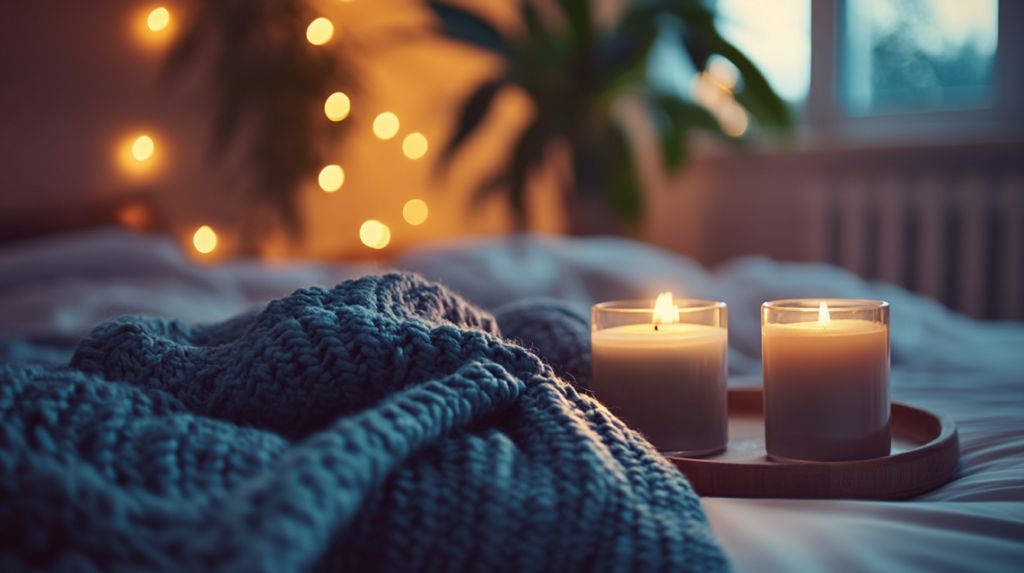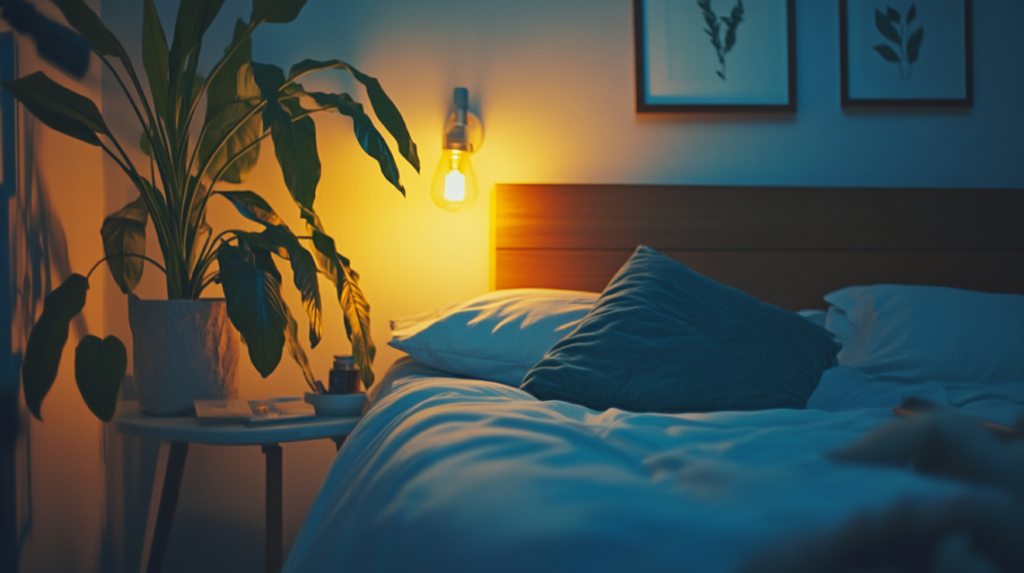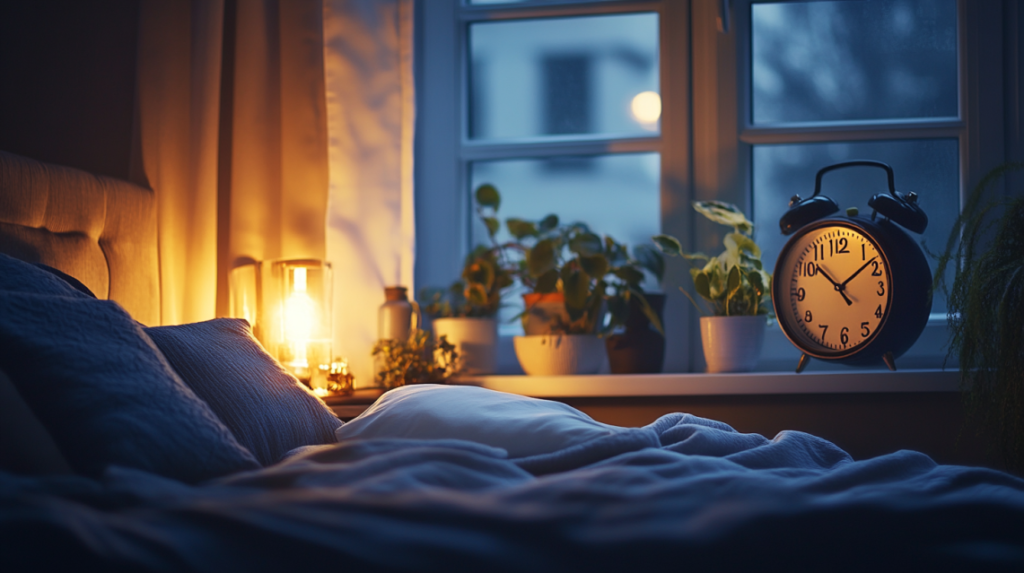Welcome to WeeZful – Your Guide to Healthy Living! My name is Nyla, and I’m passionate about helping people make smarter food choices for a healthier, happier life. Through my website, I share expert-backed nutrition tips, wholesome recipes, and practical wellness advice to make healthy eating simple, enjoyable, and sustainable. Whether you’re looking to boost your energy, manage your weight, or simply adopt a better lifestyle, you’re in the right place! Today, we’ll dive into The Best Nighttime Habits for Better Sleep and Relaxation.
Table of Contents
Understanding the Importance of Sleep
Why Sleep Matters
Sleep is not just a time for our bodies to rest; it’s a crucial period for recovery and rejuvenation. Quality sleep enhances our mood, sharpens our cognitive functions, and strengthens our immune system. Have you ever noticed how a good night’s sleep can make everything feel more manageable? That’s because sleep plays a vital role in our overall health.
The Science Behind Sleep
When we sleep, our bodies undergo various processes that help repair tissues, synthesize proteins, and release hormones. This is why establishing nighttime habits that promote better sleep is essential for our well-being.

Creating a Sleep-Inducing Environment
1. Optimize Your Bedroom
Your bedroom should be a sanctuary for sleep. Keep it cool, dark, and quiet. Consider blackout curtains to block out light and earplugs or a white noise machine to drown out disruptive sounds.
2. Invest in Quality Bedding
A comfortable mattress and pillows can make a world of difference. Choose bedding that supports your preferred sleeping position, ensuring you wake up refreshed.
3. Limit Electronics
The blue light emitted by screens can interfere with your body’s natural sleep-wake cycle. Try to avoid screens at least an hour before bedtime. Instead, consider reading a book or practicing relaxation techniques.
Establishing a Nighttime Routine
4. Set a Consistent Sleep Schedule
Going to bed and waking up at the same time every day helps regulate your body’s internal clock. This consistency can significantly improve the quality of your sleep.
5. Wind Down with Relaxation Techniques
Incorporate calming activities into your nighttime routine. This could include meditation, deep breathing exercises, or gentle yoga. These practices help signal to your body that it’s time to relax.
6. Limit Caffeine and Heavy Meals
Avoid caffeine in the afternoon and evening, as it can disrupt your ability to fall asleep. Additionally, heavy meals close to bedtime can lead to discomfort and indigestion. Instead, opt for a light snack if you’re hungry.
Mindfulness and Mental Preparation
7. Practice Gratitude Journaling
Taking a few minutes to jot down what you’re grateful for can shift your mindset and promote relaxation. This simple habit can help clear your mind of stressors before bed.
8. Visualize a Peaceful Scene
Visualization can be a powerful tool for relaxation. Picture a serene landscape or a calming experience, allowing your mind to drift away from daily worries.

Incorporating Natural Sleep Aids
9. Herbal Teas for Relaxation
Certain herbal teas, like chamomile or valerian root, can promote relaxation and improve sleep quality. Enjoy a warm cup about an hour before bed to help you unwind.
10. Essential Oils for Calmness
Aromatherapy can enhance your nighttime routine. Lavender essential oil, for instance, is known for its calming properties. Consider using a diffuser or applying diluted oil to your wrists before bed.
Physical Activity and Its Impact on Sleep
11. Regular Exercise
Engaging in regular physical activity can help you fall asleep faster and enjoy deeper sleep. Aim for at least 30 minutes of moderate exercise most days, but try to avoid vigorous workouts close to bedtime.
12. Stretching Before Bed
Gentle stretching can relieve tension in your muscles and prepare your body for sleep. Consider incorporating a few simple stretches into your nighttime routine.
Managing Stress and Anxiety
13. Addressing Daily Stressors
Take time to reflect on your day and address any lingering stressors. Whether it’s through conversation, journaling, or problem-solving, tackling issues head-on can prevent them from disrupting your sleep.
14. Seek Professional Help if Needed
If anxiety or stress is significantly affecting your sleep, don’t hesitate to seek professional help. Therapists and counselors can provide strategies to manage stress effectively.

The Role of Nutrition in Sleep Quality
15. Foods That Promote Sleep
Certain foods can help improve sleep quality. Foods rich in magnesium, like almonds and spinach, or those high in tryptophan, like turkey and bananas, can promote relaxation and better sleep.
16. Hydration Balance
While staying hydrated is essential, try to limit fluid intake close to bedtime to avoid nighttime trips to the bathroom.
Conclusion
Incorporating these nighttime habits can lead to better sleep and relaxation, ultimately enhancing your overall well-being. Remember, it’s about finding what works best for you and creating a routine that fosters restful nights.
Thank you for being here! I truly appreciate your support and interest in leading a healthier lifestyle. If you found this article helpful, please consider sharing it with your friends and family to inspire better food choices. Don’t forget to follow me on Facebook and Instagram for daily nutrition tips, wholesome recipes, and wellness insights. Your engagement means the world to me, and I can’t wait to continue this journey toward better health with you!
FAQs
1. How long should my nighttime routine be?
Aim for at least 30 minutes to an hour to allow your body to wind down properly.
2. Can I use sleep aids?
While some people find relief with over-the-counter sleep aids, it’s best to consult a healthcare professional for personalized advice.
3. What if I can’t fall asleep?
If you can’t fall asleep after 20 minutes, get up and engage in a calming activity until you feel sleepy again.
4. Is napping during the day okay?
Short naps can be beneficial, but try to limit them to 20-30 minutes to avoid disrupting your nighttime sleep.
5. How can I improve my sleep environment?
Consider adjusting the temperature, reducing noise, and using comfortable bedding to create a sleep-friendly environment.

